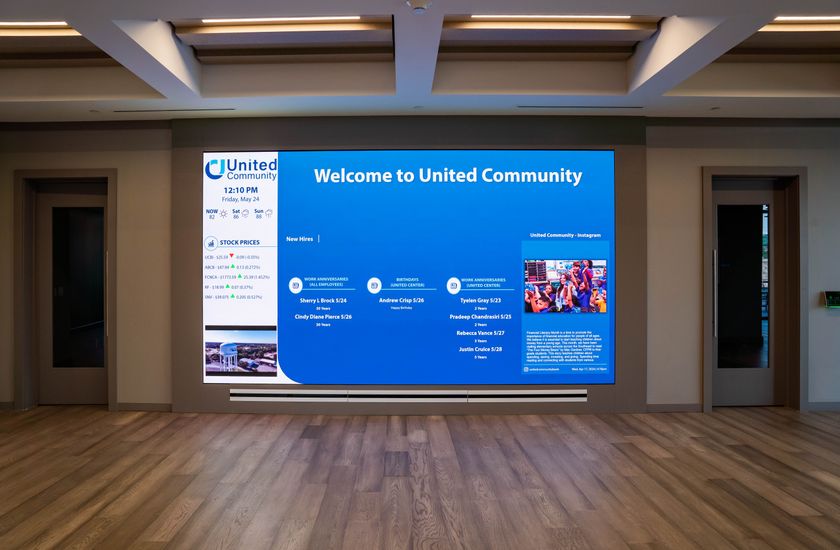In my last column, I spoke about the notion of 'good enough'. I thought I would expand upon that theme in the form of the systems I sell (or don't) and the systems I should be selling.
Emerging markets come with all the complexities and socio-economic challenges of everyday life, but with unique and unfamiliar cultures. We may be taken aback by the wonky business acumen, strange approach to markets, and even stranger products or services that may we read about, but that's the world we live in as a global business community.
When we lumber into the office, our culture comes screaming back to life-we are faced yet again with the laborious task of selling our products and services to the people we think we know best, not those strange and exotic emerging markets.
But there is a tie-in here. The 'good enough' model is thriving in those markets, and may be well understood in places like India, Asia-Pac, and China. The fact is, products and services that are easier to use, easier to maintain, cheaper to produce, and more available resonate with emerging markets. They also have a mass appeal across the socio-economic changes.
If that's the case, it doesn't sound strange, exotic, or far-flung after all, does it?
The issue is that our socio-economic drivers are ripe with the notion of a shrinking middle class who have less money and want more value for every dollar. They are pressed for time at every corner of their lives. They seek control and desire products and services that may sacrifice bigger, better, or more features for products and services that can be timesaving and easier to manage and use.
The AV integration business has terrific manufacturers who design systems to do millions of things. We assembled these parts and dreamt up systems to control and manage a phalanx of products. With silly grins on our faces, we presented this Rube Goldberg contraption as the juggernaut of AV systems. It could dice, slice, and julienne as well as lower a screen and start a videoconferencing codec.
The problem is, it is pure overkill. The systems were the envy of our industry, and when we installed them, no one had ever heard of the gesture called the 'swipe'. None of us knew the byzantine approach, which Apple has traditionally taken, would appeal so far and so much as to create a revolution in design-centric electronics that would render our juggernaut a Heath Robinson creation.
I recently sat in a meeting with a CIO of an extremely large law firm. As she started the meeting, she pointed to a touchpanel and said, "This is crap. It's difficult to control, and every videoconference we have needs to have some IT support."
Before you think the system is actually "crap", it is not. It was installed seven years ago and was state-of-the-art then, with a very intuitive touchpanel interface. The videoconferencing issues are more to do with their network and training than anything else. In fact, the attorneys won't even make time to be trained, as they have IT staff to do all this for them... Hey, time is money to an attorney, right? Yeah, we get it.
I took the heat of her invective over the system and listened patiently to the frustration. I clarified and summarized her diatribe to make sure I understood. I took a brief pause, thought of the technology I use on a daily basis, and said, "You are absolutely right. This is crap."
She is right! Today, we swipe our way to information, we store it in the cloud, we download it and watch it on the go, we pin it, we tweet it, we post it, we create it all from our favorite, pocket-sized device. Why does a conference room have to be complex when I can do all that from my phone?
Lot's of people say, "Hey Todd, you're a technology professional. Let me tell you why Apple products really stink." Really? Okay, so it doesn't do this and Apple won't let you do that and you have to do this to do that. I get it. But you know what? It disrupted the industry and it's good enough. It saves me time, I can easily manage it, and it is a tremendous value for my money.
The truth is, it is a superiorly designed 'good enough' product. That's the key—superior design. Being good enough is a huge opportunity as long as it has superior design. The iPad, iPhone, and MacBook Pro were far superior in design than anything on the market at the time, and this philosophy carried all the way down to the packaging. Sure, there are a host of reasons to be upset with how Apple handles things, and that may find you toting around your Droid, but the device you're holding didn't launch a thousand ships. The Apple product did.
What does this mean to you and me? Simple, it means—actually, just that, simple. I've been spending a lot of time looking for the next AV revolution in system management and control, and I know there are touchpanel makers out there, but none of them have what I feel is the next-generation solution born from the notion of superior design in a 'good enough' world with a direct tie-in to the BYOD phenomena.
Can you program a touchpanel to easily make video calls to other offices and directly dial into certain rooms? Sure, and if that IP changes at the far end for the codec? That means rolling a truck or logging in to make the change. Sure, that's revenue to me, but it should be easier than that. A system that uses an active directory to authenticate users and manages enterprise-level alterations without having to call the AV guy every time something changes would be nice, wouldn't it? Is there third-party software that does that? Yes. But why third party? Why isn't a company focusing on what really matters?
I challenge you to identify those companies who are paying attention and those who haven't gotten the wakeup call. How can this Apple-fueled revolution of design be used to help the AV industry evolve? It can start by simply swiping and using responsive systems and interfaces that are tied to the enterprise and work in the IT environment. We don't need bulky solutions with 1,000 functions when all people really want and can afford right now is 'good enough'. Leave your juggernaut at back at the office. It scares the kids.
For more than 25 years, Todd McCandless has been providing business technology solutions for small, middle market, and enterprise organizations with sales, marketing, strategy, operations, applications, and infrastructure. He is currently the general manager for the technology division of CI Select in St. Louis Missouri.


